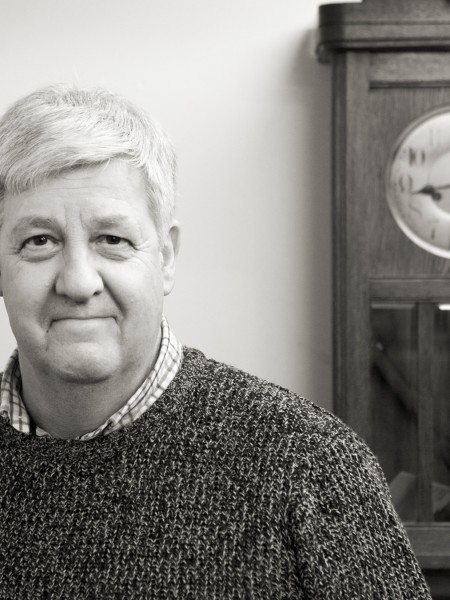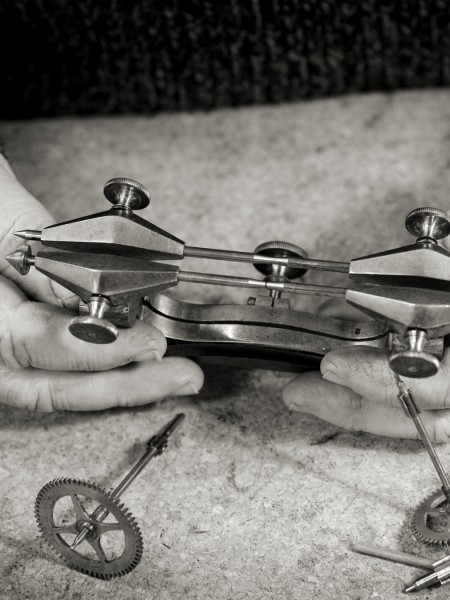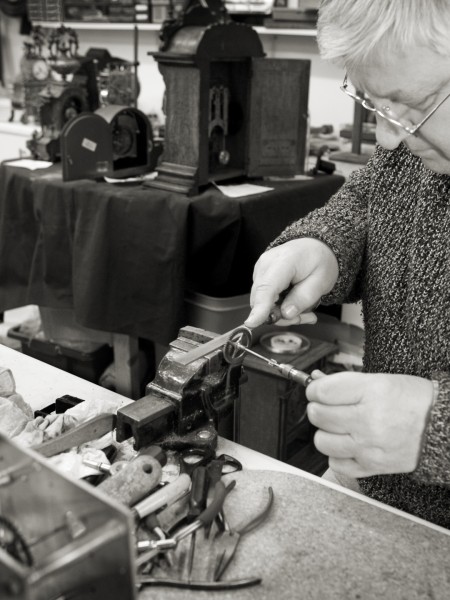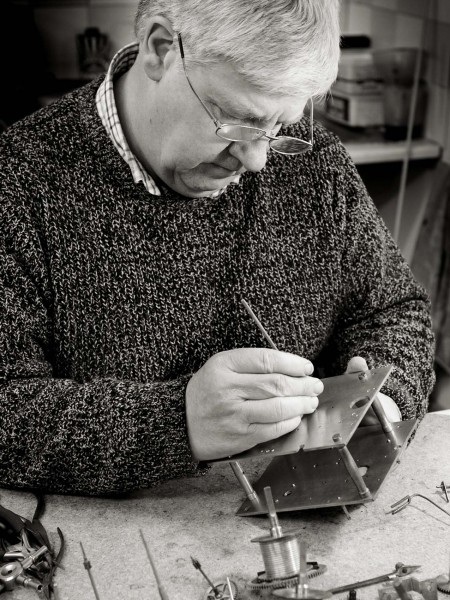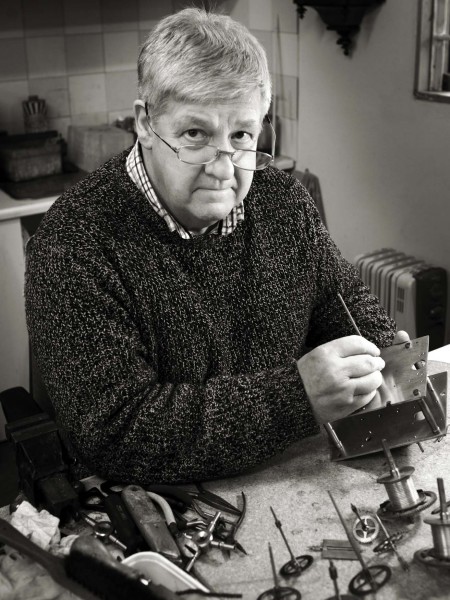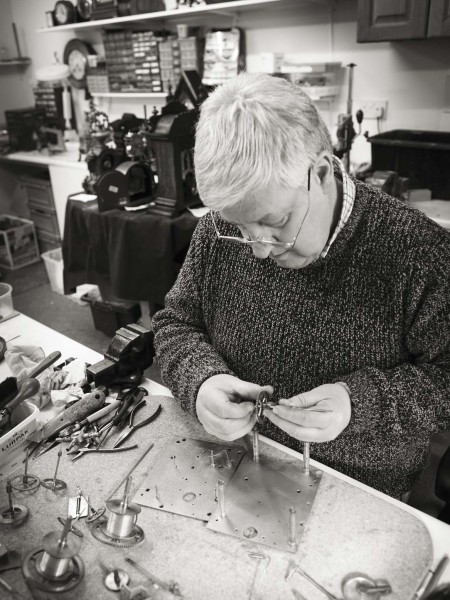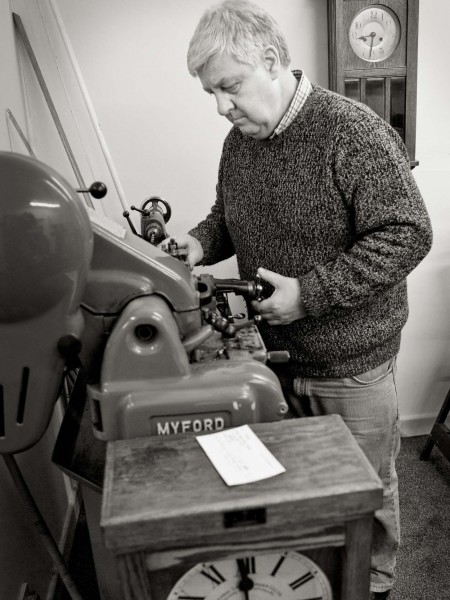Q. What is your principle professional skill?
A. Horologist.
Q. Can you tell us a little about it?
A. The repair and restoration of mechanical clock movements and cases.
Q. How long have you been practising your skill?
A. About 30 years.
Q. How did you learn your skill?
It started as a hobby when I was a young man. Then I went on a training course to improve my knowledge. One thing led to another and I found myself working for an established horologist, in a workshop with other more experienced repairers from whom I gained a great deal of knowledge. After that period I set up my own business and my experience grew “on the job”. The first year was hard but by the second year all the basic skills were well honed and I had mastered the art of running a small business. There are other skills within the trade, such as dial restorers, cabinet makers, specialist wheel and pinion cutters etc. These are the people that one often meets at clock and watch fairs and often prove to be useful contacts when part of a job would benefit from their specialist skills.
Q. Are there any other people in the region doing what you do?
A. Yes, but not many.
Q. How important do you think your skill is for the region?
A. Very important. There are many lovely old clocks in the area and they are always going to need repairing and maintaining.
Q. How has your profession evolved over the last few decades?
A. I don’t think that it has changed a great deal in the way that I work. Much of the job is done with hand tools that are the same as those used decades ago. After all, the clocks that I am working on have not changed, they have also been around for decades. What has changed is the way that society is moving away from mechanical clocks to the modern throw-away quartz clock. Clock repairing is one of the oldest engineering trades that still exists in modern times. There are very few young people coming into the trade and as the old clock repairers pass away the numbers become steadily depleted. Not surprising really as it would be difficult in modern times for a young man with a family to make a decent living in this trade.
Q. What are the main differences between now and when you started?
A. There is little difference. My workshop looks the same, although I am now living in a different area of the UK. I still use some of the same tools that I first bought when clocks were just my hobby.
Q. How do you anticipate the future to be for your skill?
A. I anticipate that there will always be some work but it will probably diminish over the coming years.
Q. How important do you think it is to pass the skill on to the next generation?
A. I think it is very important to pass on practical skills.
Q. How could that be achieved?
A. Maybe a bursary system or by sponsorship.
Q. Would you be prepared to train someone?
A. As a small one-man business I can’t afford to do that. My skill is very labour intensive so I could not take time out to teach a trainee, nor could I afford to pay someone who would not be creating income to the business. There is only one place now in the UK where horology is taught, it is very good but very expensive.
Q. Do you think that society should feel obliged to find a way of preserving such skills?
A. Yes, there will always be a requirement for these skills whilst mechanical movements still exist. For example, in World War 2, the military suddenly realized that they needed mechanical timers for bombs and there were insufficient clock makers to cope with the demand. There are a lot of skills and trades which once lost cannot be regained.
Q. Does having a skill change the way you see the world?
A. Yes, I believe that every school child should have the opportunity to work with their hands and make things in metal or wood etc. to get the feel of using tools. Not every child is inclined towards academic subjects, some would benefit far more from being taught practical skills to enable them to go into business for themselves, perhaps as a plumber, joiner or blacksmith. Or, perhaps as a clock repairer!
Q. What kind of rewards do you get from your skill, monetary and/or otherwise?
A. I get the satisfaction of seeing something restored to working order. It is quite a challenge sometimes when a customer passes me a box of bits that they have found in granny’s attic, but it’s a joy when eventually the beloved family heirloom is restored to its former glory. And of course I get paid for my work which is what makes the world go round!
Q. What impact has broadband and the internet had on your work?
A. Broadband and the internet has meant that customers can search for a repairer in their area, send an e-mail to me when they find my website and get a prompt reply. If I need a picture of their clock to answer a query, it can be with me within minutes. So much quicker than post, or any other method. I can also buy components very quickly online and view auction catalogues etc. I find the internet very useful.
Q. What, if anything, could be done to help to preserve your skills and support your profession?
A. People should understand that if they want their clocks repaired they need to be prepared to pay a fair price for the time and skill that goes into doing the job. The only way to guarantee that your local repairer will be there when you need him is to use his services. Like the old saying goes “Use it, or lose it!”
